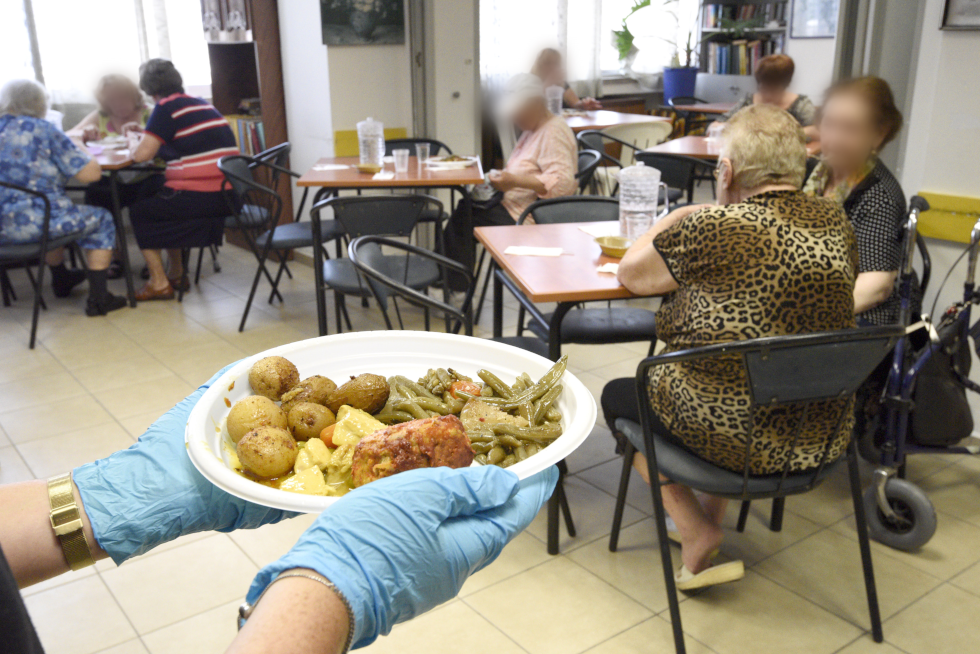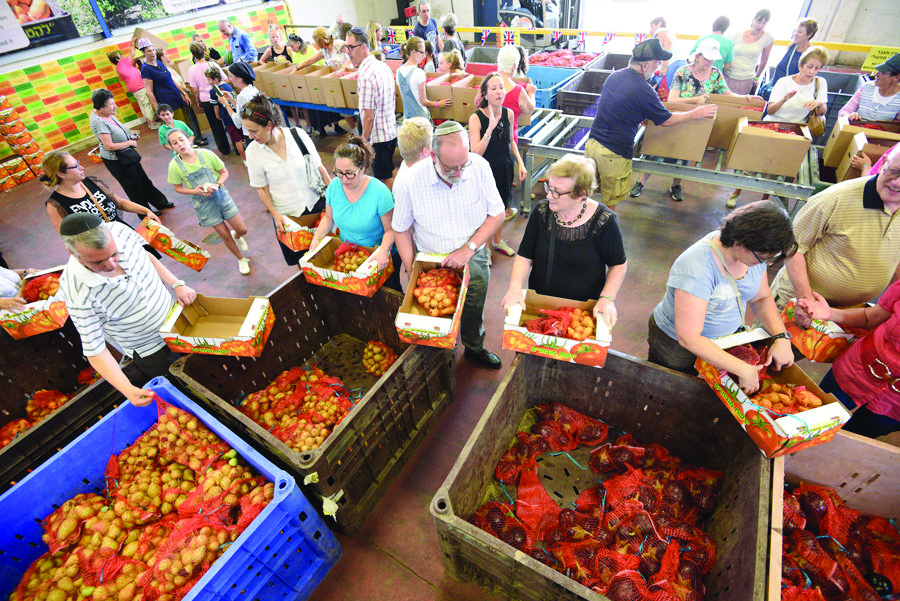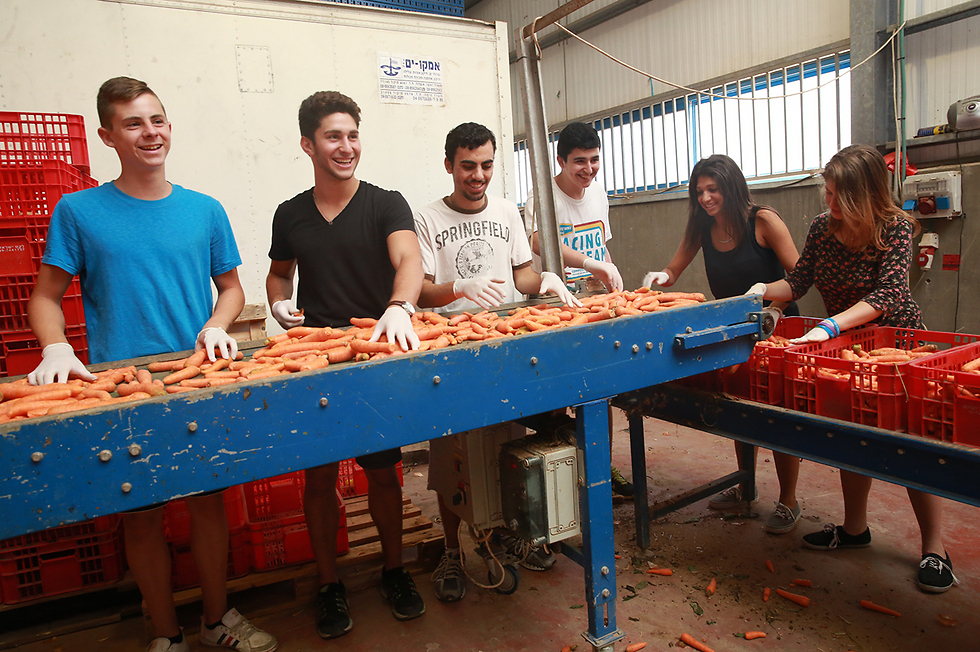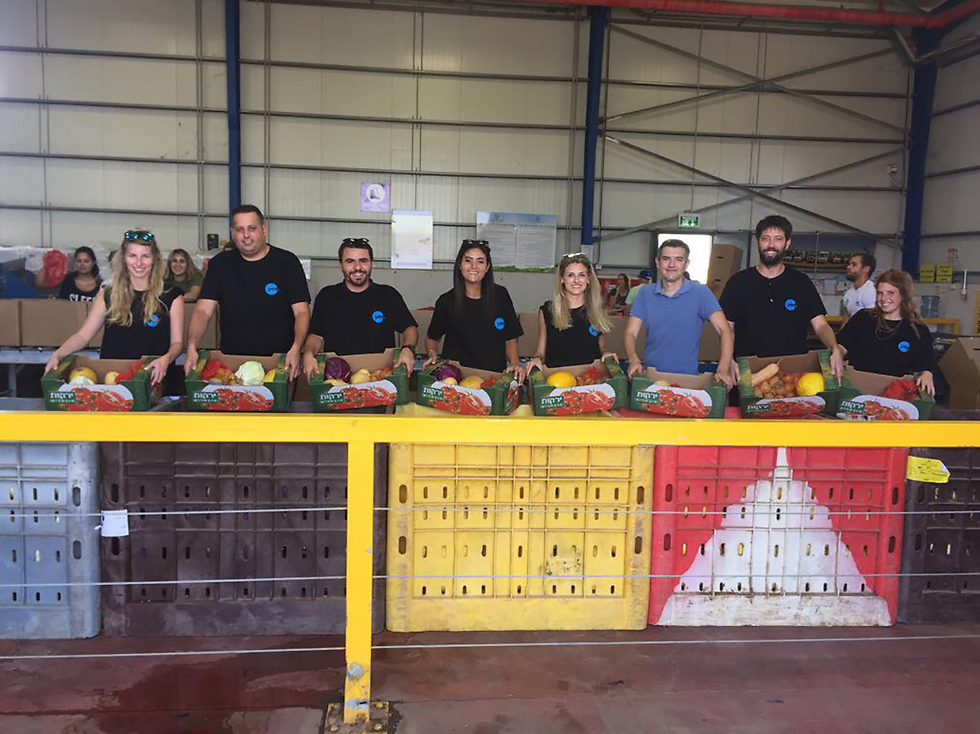Israelis will spend an estimated $2.3 billion on food over Passover. Of this, some $600 million worth, or 240,000 tons, of food will be thrown away, the majority from private homes.
“Think before you buy; it will save you money and help avoid food waste,” Leket Israel − The National Food Bank, says.
The weeklong holiday kicks off with the Seder celebration on Saturday night, and with it comes a series of family visits and large communal meals. However, Passover features an additional phenomenon: increased food waste.
On average, each Israeli household will spend $766 on food for the holiday, of which $99 will end up in the trash, Leket Israel says. Private households are expected to throw away approximately $360 million worth of food, while the waste generated by the entire market will tally an estimated 240,000 tons, worth up to $600 million, according to the country’s largest food rescue organization.
Gidi Kroch, Leket Israel’s CEO, suggests that the waste during Passover has cultural roots.
“There are cultural things involved,” he told The Media Line. “Our culture or heritage says that we have to have a lot of food on the table so no one is short on food, and it’s also a part of our value of hospitality, hachnasat orchim, that you have a lot of food on the table, and when you have a lot of food on the table you generate a lot of waste because, usually, you don’t eat everything.”
Kroch emphasizes that the majority of waste is generated in private homes. Because of bad shopping habits and marketing ploys, “you end up buying a lot more than you intended and you end up cooking more than you need, and at the end of the day it’s thrown away.”
Leket Israel, however, is unable to collect food from households, because “there are food safety issues,” he explains.
The second-largest source of waste during Passover comes from hotels. This also has to do with a desire for food and drink to be plentiful, Kroch suggests.
Sharona Lahav is the food and beverages manager at U Coral Beach Club, a hotel in Eilat, and this is her 10th year working for Fattal Hotels – a large Israeli chain. “Food is always left over, always,” she told The Media Line.
The hotel always prepares more food than is strictly needed for the registered guests, she explains. And in the past, she says, the hotel could not donate food because of Health Ministry regulations, and “then, a lot of food really was thrown out,” especially surrounding peak periods such as Passover.
However, “nowadays, almost no food goes to waste, since Leket Israel has entered the picture.” With the help of the organization, “we donate approximately 800 meals a day,” Lahav says.
In 2019, food worth almost $6.2 billion was wasted in Israel, according to a report produced by Leket Israel jointly with the Environmental Protection Ministry, and based on a model developed by BDO Israel, a large accountancy firm. This amounts to 2.5 billion tons of sustenance, almost half of which could have been saved, according to the report.
The Israeli public’s expenditure on food is exceptionally high, Leket Israel and the ministry’s report said. Approximately 17% of the average family’s consumption basket goes for food. Still, 465,000 households in Israel experience food insecurity.
Leket Israel saved 18,500 tons of fresh produce, as well as 2.4 million meals, in 2020, the NGO says. The food was then distributed to the organization’s partners, and ended up helping a quarter of a million people in need. The organization’s largest supplier is the IDF, donating 50,000 meals a month.
Gideon Ben Ami runs Pesia’s Kitchen, an organization that delivers 1,000 meals a day to those in need, mainly in southern Tel Aviv. Leket Israel supplies Pesia’s Kitchen with rescued food and assistance, amounting to some 500 tons of food annually.
“We created this organization to fight chronic hunger in our backyard, in southern Tel Aviv,” Ben Ami told The Media Line. “We help the communities that are in need in that area, be it the elderly, women’s shelters, the children of refugees, the homeless, women who are involved in drug use and prostitution,” he explains.
Leket Israel not only passes on rescued food to the organization, it helps it to rescue food from “companies that feed their employees, which have cafeterias, and where there is a lot of leftover food. Companies like Google, like Waze, the Electric Corporation.”
Pesia’s Kitchen has “teams that go out to collect this excess food, excess cooked food, which is brought directly to homeless shelters,” for example, Ben Ami says. In this way, food that was left over from lunch at Google’s cafeteria will be brought hot to those in need, to be served for dinner.
If all excess food in Israel was rescued, “there would be no hunger here, and the same is true for the entire world,” Ben Ami says.





